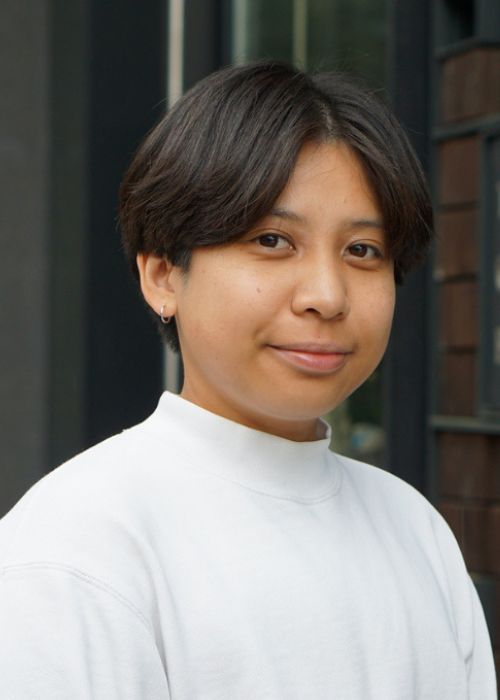
Why did you choose UW?
UW appealed to me by having a coordinated program in dietetics, especially because it also offers a Master of Public Health. It was important to me to get my MPH and complete the dietetic internship, and I felt that I would not only benefit from but enjoy the accelerated timeline. I also loved the idea of living in Seattle and working here after graduation.
What influenced you to pursue a graduate degree in food systems, nutrition, and health?
I knew I wanted to work in public health nutrition after being involved in soda tax research during my undergrad at UC Berkeley. For that niche, the MPH-Nutrition degree program provides me the education, experience, and connections to work in that setting. I earned a B.S. in Nutritional Sciences and have some experience with the clinical nutrition side, but I saw myself working with communities and developing and implementing programs to support food access and health.
How do you see the important role of nutrition in public health and disease prevention?
Nutrition is a key part in the prevention and management of chronic diseases which make up some of the leading causes of death in the United States such as diabetes, cardiovascular disease, and kidney disease. I believe there has been a lot of work done in medicine for the treatment of these diseases, and I hope that more work will be done in public health nutrition for their prevention. That involves focusing on communities with a higher burden of nutrition-related chronic diseases and ensuring our public health initiatives are culturally relevant, collaborative, and sustainable.
What’s something you have learned while at UW that has changed your perspective?
What I love about the professors and the coursework in our program is the focus on weight bias in both dietetics and the field of public health. Even though my undergraduate degree was in nutritional sciences, this was not a topic that was mentioned or part of the curriculum. To have it be discussed in depth, and to think about how we can destigmatize weight in our future careers in public health or dietetics, was a very empowering learning moment.
Tell us about your fieldwork.
For my fieldwork, I submitted a project I completed as part of my summer experience with ASPHN’s and CDC’s DNPAO Nutrition and Physical Activity Traineeship. For this traineeship, I worked with Arizona Department of Health Services on Food is Medicine initiatives and food access maps as part of their SPAN grant. It was a great opportunity to work with a state public health department and get experience in program development. My fieldwork project was the creation of a brief on Food is Medicine programs in Arizona, the use of Medicaid 1115 waivers in other states to support statewide FIM programs, and recommendations for Arizona to submit an 1115 waiver for FIM.
What are your future goals?
I’m aiming to work in a local or state public health department in Washington, and am interested in public health work in food sovereignty, eating disorder prevention, and making the state’s nutrition assistance programs more culturally inclusive. I’m particularly passionate about working with immigrant and LGBTQ+ populations.
What do you like to do for fun?
Most of my free time is spent reading, drawing, and trying new food spots around town. I also enjoy all the nature in and around the city, whether that be taking a walk through a local park or traveling to a national park.
What do you enjoy most about living in Seattle?
There’s always something fun going on in Seattle. I think you can usually find a group of people doing whatever hobby or interest you’re into which is super cool.
What advice would you give someone considering your programs?
Have a goal in mind with attending this program, whether that be to network with other professionals, making a career change, getting into research, etc. Graduate school is a lot of work, but I find it rewarding knowing all that work is going towards accomplishing my goal.
Are you interested in studying nutritional sciences as a graduate student? Explore programs and RDN training offered in the UW Food Systems, Nutrition, and Health program.